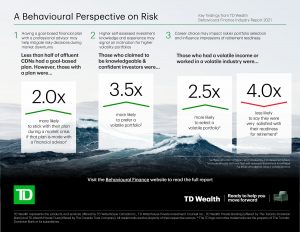What your personality has to do with your investments
Many factors can affect your investment portfolio, including your personality. Find out how it can relate to investing behaviours, such as goal setting and confidence.
Advertisement
Many factors can affect your investment portfolio, including your personality. Find out how it can relate to investing behaviours, such as goal setting and confidence.


Share this article Share on Facebook Share on Twitter Share on Linkedin Share on Reddit Share on Email